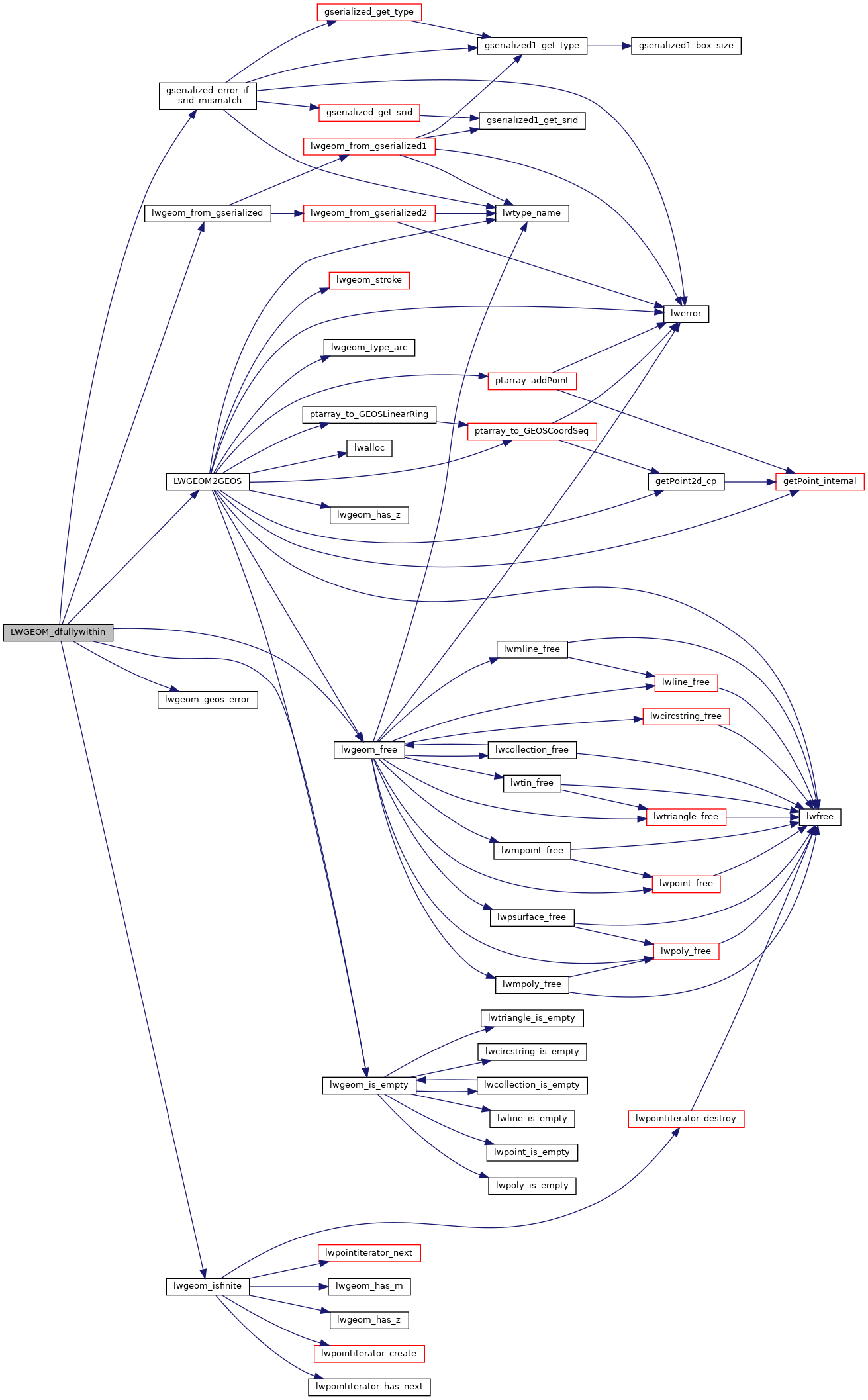◆ LWGEOM_dfullywithin()
| Datum LWGEOM_dfullywithin | ( | PG_FUNCTION_ARGS | ) |
Returns boolean true if the second argument is fully contained in a buffer of the first argument.
Definition at line 2687 of file postgis/lwgeom_geos.c.
void gserialized_error_if_srid_mismatch(const GSERIALIZED *g1, const GSERIALIZED *g2, const char *funcname)
Definition: gserialized.c:432
LWGEOM * lwgeom_from_gserialized(const GSERIALIZED *g)
Allocate a new LWGEOM from a GSERIALIZED.
Definition: gserialized.c:268
GEOSGeometry * LWGEOM2GEOS(const LWGEOM *lwgeom, uint8_t autofix)
Definition: liblwgeom/lwgeom_geos.c:400
int lwgeom_isfinite(const LWGEOM *lwgeom)
Check if a LWGEOM has any non-finite (NaN or Inf) coordinates.
Definition: lwgeom.c:2807
static int lwgeom_is_empty(const LWGEOM *geom)
Return true or false depending on whether a geometry is an "empty" geometry (no vertices members)
Definition: lwinline.h:199
Definition: liblwgeom.h:443
Definition: liblwgeom.h:457
References gserialized_error_if_srid_mismatch(), HANDLE_GEOS_ERROR, LWGEOM2GEOS(), lwgeom_free(), lwgeom_from_gserialized(), lwgeom_geos_error(), lwgeom_is_empty(), and lwgeom_isfinite().
Here is the call graph for this function:
